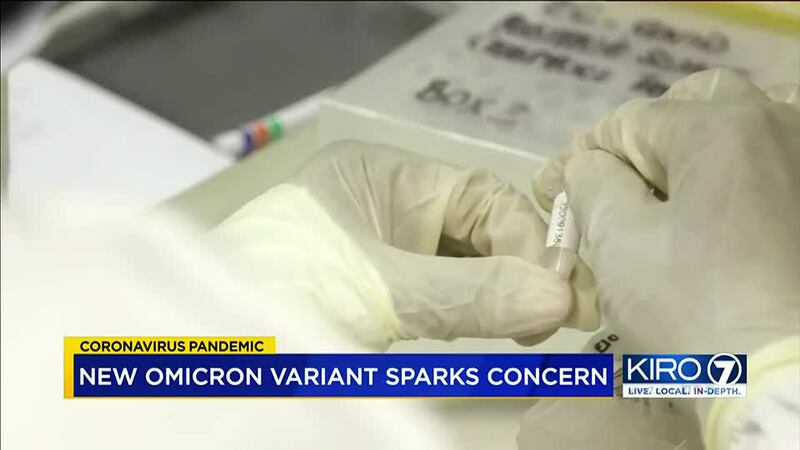The United States announced a travel ban from South Africa and seven other nearby countries on Friday, as the World Health Organization declared another new variant of concern — now labeled the “omicron” variant.
Scientists are deeply concerned about the new variant, which has dozens of mutations and has quickly put the entire world on high alert. Cases in South Africa have increased sharply in the past few days.
“This virus just burst out of nowhere with all these different types of mutations,” said Dr. Deborah Fuller with UW Medicine. Fuller works on vaccine research and development, including for COVID-19. She is also the division chief of infectious diseases and translational medicine.
Fuller says the variant has specific mutations on its spike protein that indicates it has potential to resist vaccines and be more likely to spread.
“We saw when a virus has increased transmissibility, it starts to take over. This is exactly what happened with the delta variant. So to some extent that’s a really big concern,” Fuller said.
She said their team has been emailing over the Thanksgiving holiday about the new variant and preparing test plans to test how effective existing vaccines are against the omicron variant. Other departments are planning to increase testing and sequencing to search for the variant here in Washington State. It’s not currently clear if the variant has made its way to the United States.
The U.S., Canada, and countries in the European Union have all moved to ban travel from South Africa and surrounding countries.
The sudden ban had visitors scrambling to leave Cape Town and Johannesburg on Friday. The travel ban to the United States kicks in on Monday.
Travelers here at Seattle-Tacoma International Airport say it’s concerning to see yet another variant start to take off.
“I’m an old man and I have a pre-existing heart condition so I worry about this,” said Rick Nordhagen, who was flying out of Sea-Tac Friday.
He believes the travel ban makes sense.
“It’s a wise thing to do. This covid seems to spread so quickly. I think it’s good if they keep the flights to a minimum until they know what’s going on with it,” Nordhagen said.
Dr. Ali Mokdad, with the Institute for Health Metrics and Evaluation (IHME), works on global COVID-19 data predictions.
He believes that even with the ban, the omicron variant will spread.
“We know for example there’s a case in Belgium, that the person came from Egypt. We know there’s a lot of travel between South Africa and India. Shutting down the travel to South Africa — it’s too late, it’s already been to other places and it’s spreading,” Mokdad said.
He said he would recommend additional quarantine restrictions, despite how challenging they are.
“What you really need to focus on is making sure when people arrive at a country, they have two weeks to stay at a hotel and make sure they’re negative before they’re allowed into a country. Measures this are more effective,” Mokdad said.
Scientists say with global holiday travel underway, the variant could not have come at a worse time.
“It could create a perfect storm of exacerbating the uptick in frequency that we would have expected anyway during the holiday,” Fuller said.
Fuller and Mokdad both recommend getting the COVID-19 booster to bolster protection. Mokdad added upgrading your cloth mask to a KN95 mask will help offer more protection.
©2021 Cox Media Group








